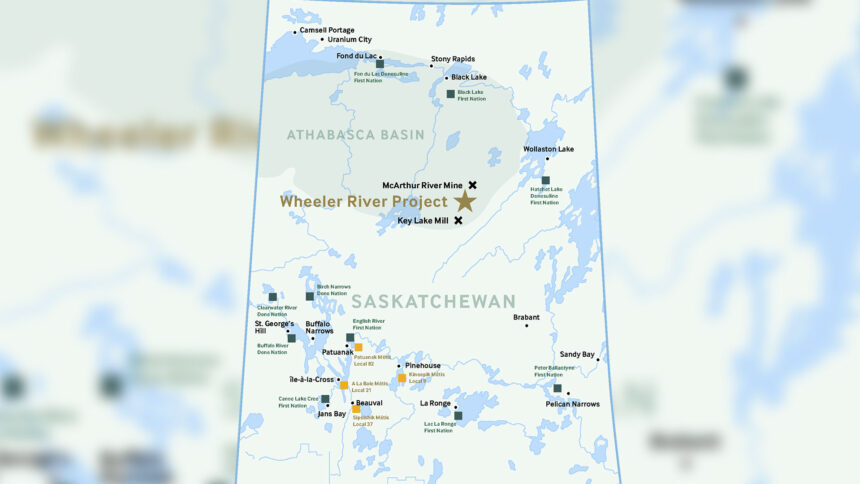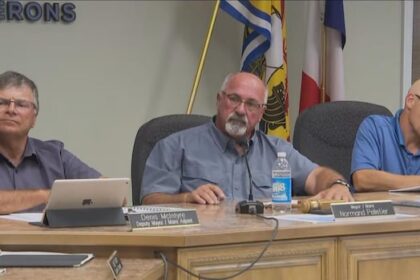The leadership of the Peter Ballantyne Cree Nation (PBCN) filed a judicial review today in the Saskatchewan Court of King’s Bench, challenging the provincial government’s environmental assessment decision for a project located within the Nation’s traditional territory, according to a news release. PBCN chief and council unanimously agreed to proceed with the court action after concluding that Saskatchewan failed to meaningfully consult or accommodate the Nation, as required under the constitution. “We met with the province. We sent them information. We asked to be at the table,” said Chief Peter Beatty in the release. “Instead, our concerns were sidelined. Consultation is not paperwork — it’s a constitutional duty. Saskatchewan’s actions fell far short of that duty, and we took this step to protect our rights, land, our water, and our people.” A judicial review is when, in this case the PBCN, asks the Federal Court to look at whether a government followed the law when coming to a decision. The court can dismiss the request, or order the government take a particular action that was missed. PBCN or Assin’skowitiniwak is located in in Treaty 10 territory in northeastern Saskatchewan with over 13,000 members across nine communities spanning 51,000 square kilometres. The project site lies 740 km northeast of Saskatoon. “If built, it would become the largest uranium operation in the Athabasca Basin, a scale that demanded proper engagement, adequate capacity funding, and full recognition of the Nation’s historic and cultural connection to the land,” PBCN said. The news release states PBCN first raised concerns in 2022 and engaged repeatedly with provincial and federal regulators. According to PBCN, the Environmental Assessment and Stewardship Branch (EASB) did not formally acknowledge its duty to consult until November 2024. It came more than five years after the proponent, Denison Mines, submitted its environmental application and long after the environmental review had been completed. The Nation said when consultation was finally triggered, it was given only six weeks to review thousands of pages of technical documents and no funding to hire experts. Requests for more time and support to complete a traditional land-use study were denied. PBCN said the province’s failure to meaningfully engage not only undermined the honour of the Crown but also created uncertainty for the project itself. “By the time the province involved us, the key decisions had already been made,” Beatty said. “That is not consultation-that is an after-the-fact invitation to watch someone else decide your future.” APTN News reached out to the Environment Minister’s office for comment. “Government has not been served in relation to this matter,” said spokesperson Kerry Ward-Davis in an emailed statement. “As this regards matters that will potentially be before the courts in the future, it would be inappropriate for us to provide comment.” According to the release the judicial review argues that Saskatchewan adopted an unlawfully narrow approach by focusing only on “current land use” within the project footprint rather than recognizing PBCN’s broader rights, title, and traditional practices. The filing cites Section 35 of the Constitution, Supreme Court precedents including Haida Nation and Tsilhqot’in Nation and Canada’s obligations under the United Nations Declaration on the Rights of Indigenous Peoples (UNDRIP). “Our ancestors signed Treaty to share the land, not to surrender it,” said Beatty. “The province can’t keep treating us like an afterthought while corporations carve up our territory. We have a duty to protect the land and waters that have always sustained our people — and we won’t be silent while they gamble with our future.” PBCN is now awaiting a response from the Saskatchewan Ministry of Environment. Beatty said the Nation is ready for a long fight if that’s what it takes. “We’ve been here since before there was a Saskatchewan, and we’ll still be here when the mines are gone,” he said. “We’re not going anywhere — and neither are our rights.” Tags: Athabasca Basin, Canada, Constitution, Denison Mines, Duty to Consult, Environment minister, Haida Nation, PBCN, peter ballantyne cree nation, Saskatchewan government, Section 35, Supreme Court, Tsilhoqot’in, UNDRIP Continue Reading
First Nation in Saskatchewan takes province to court over approval of massive uranium project

Leave a Comment










